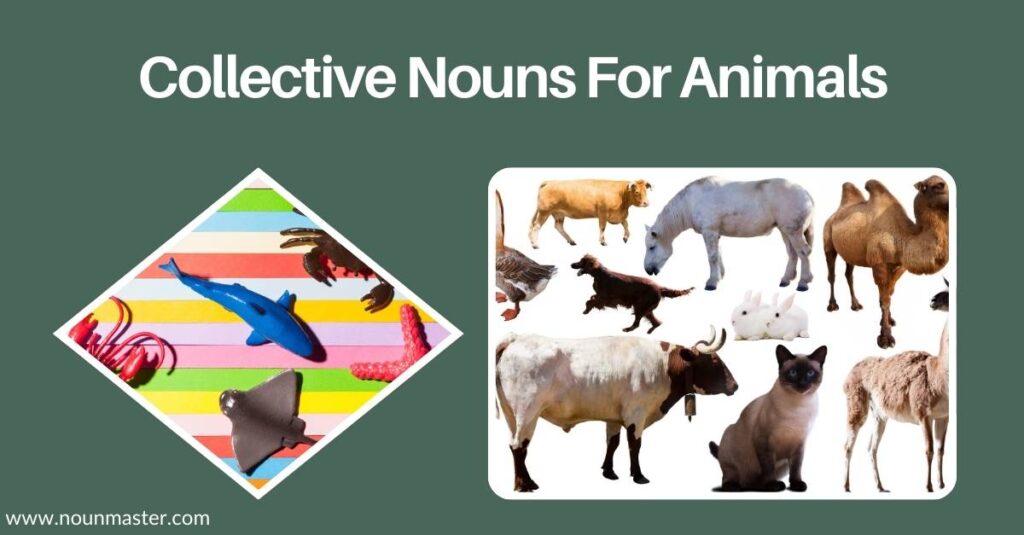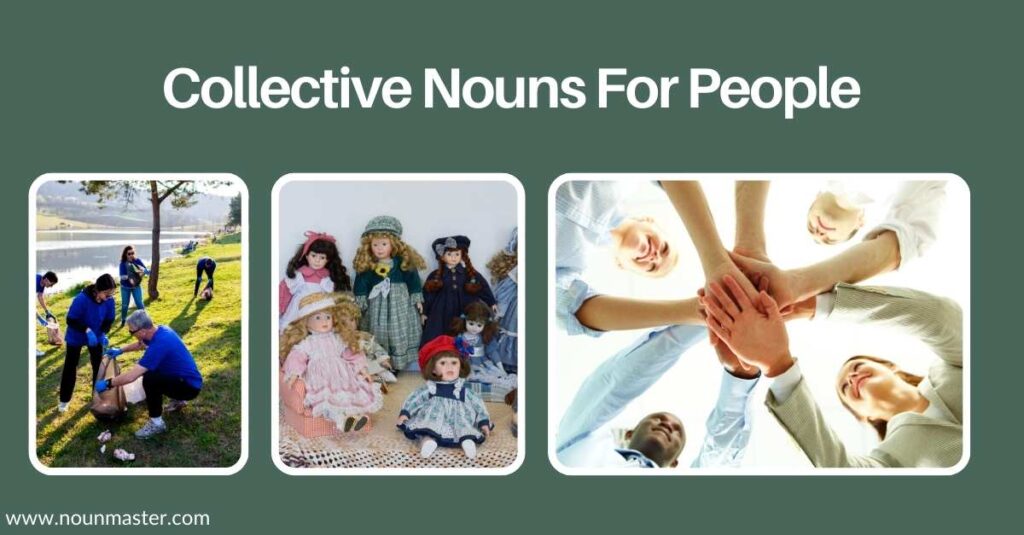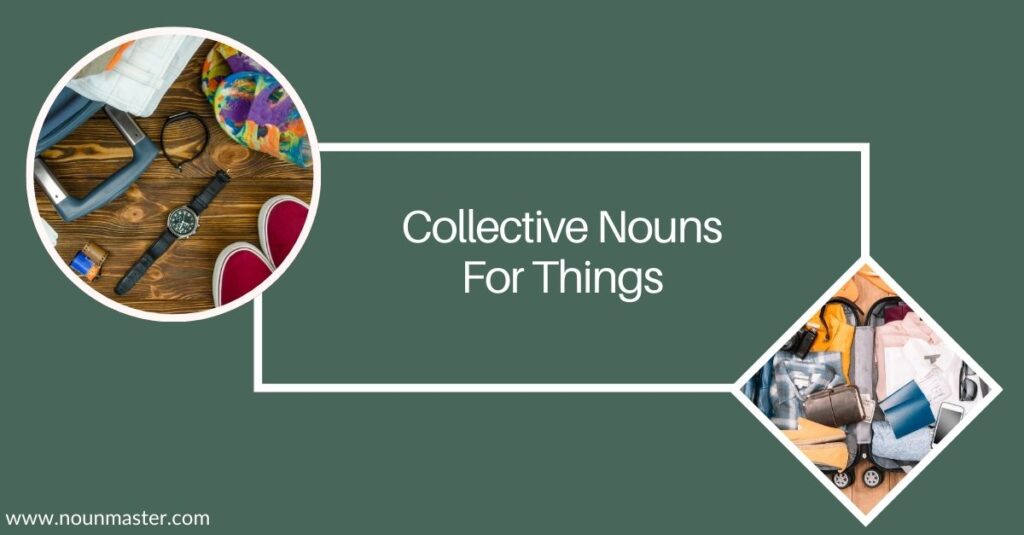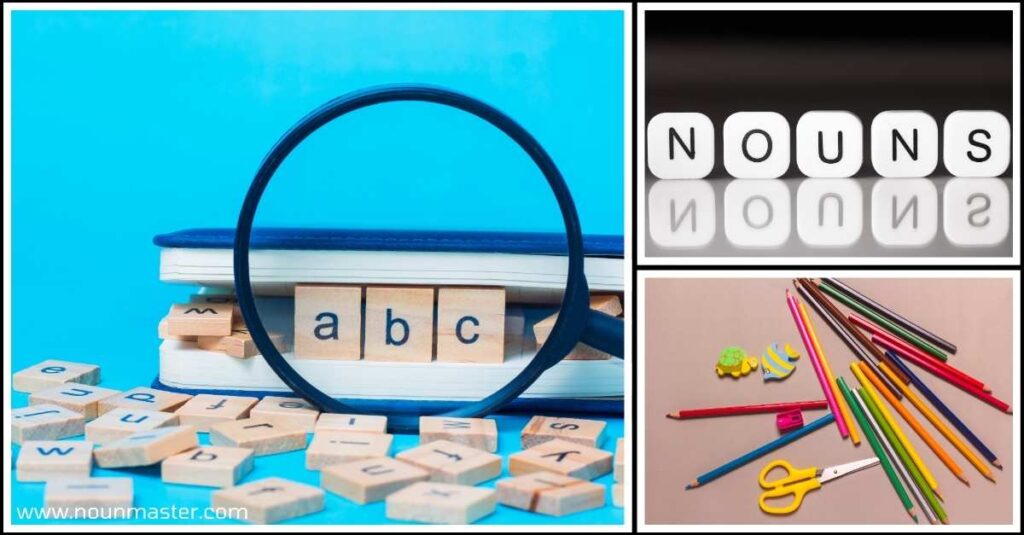Imagine a word that can turn multiple things into one – that’s the magic of collective nouns. These special words group people, animals, or objects together, making language cleaner and more precise. Instead of saying “a bunch of flowers,” you can say “a bouquet.” Collective nouns help us paint a clearer picture with fewer words, adding both style and simplicity to our speech and writing.
What is the Collective Noun?
Ever wondered how we talk about groups in English? Whether it’s ‘a swarm of bees’ or ‘a pride of lions,’ collective nouns are a powerful tool that lets us capture the essence of a group in just one word.
From people to animals to things, these nouns simplify our language and make it more vivid. Let’s dive into the world of collective nouns and see how they bring language to life!
Definition of Collective Noun
A collective noun is a word that names a group or collection of people, animals or things .Think of a “team” of players, a “flock” of birds, or a “family” of relatives. These nouns allow us to describe groups in a single, simple term.
While definitions may vary slightly across sources, major dictionaries like Merriam-Webster, Oxford English Dictionary, and Collins all agree on the basic idea.
Linguists such as David Crystal and Steven Pinker highlight the importance of collective nouns in language, as they help convey complex groupings with clarity and ease.
The Collective Noun For A Group Of Fish Is Called
Examples of Collective Nouns
Collective nouns describe groups of animals, people, or things in one word. They make it easy to talk about many as one.
Collective Nouns For Animals

- Pack of wolves
- Pride of lions
- Swarm of bees
- Shoal of fish
- Colony of ants
- Troop of monkeys
- Murder of crows
- Pod of dolphins
- Sleuth of bears
- Parliament of owls
Collective Nouns For People

- Team of athletes
- Class of students
- Audience of spectators
- Crowd of people
- Family of relatives
- Gang of criminals
- Crew of workers
- Band of musicians
- Committee of members
- Staff of employees
Collective Nouns For Things

- Bundle of sticks
- Pile of books
- Stack of chairs
- Set of tools
- Collection of stamps
- Group of keys
- Pack of cards
- Bunch of flowers
- Array of colors
- Box of chocolates
Also check out:
- Examples of Collective Nouns
- Collective noun for animals
- Collective noun for judges
- Collective noun for soldiers
- Collective noun for cards
- Collective noun for lions
- Collective noun for pearls
- Collective noun for students
Examples of Collective Nouns Used in Sentences
Here are some examples of collective nouns used in sentences, categorized by animals, people, and things:
Animals
- A pride of lions roamed across the savannah.
- The flock of birds flew south for the winter.
- A gaggle of geese wandered near the pond.
- The herd of elephants gathered at the watering hole.
People
- The team of scientists made a groundbreaking discovery.
- A family of relatives went on a vacation to the beach.
- The cast of actors performed the play beautifully.
- A group of students studied for the final exam together.
Things
- A set of tools was left in the garage after the repair.
- The collection of books on the shelf is impressive.
- A stack of papers sat on the desk, waiting to be filed.
- The pile of clothes needed to be folded and put away.
These examples show how collective nouns simplify language and help convey the idea of multiple individuals or items in a single, concise term.
Test your knowledge of Collective Nouns
Here are some creative ways to present a “Test Your Knowledge on Collective Nouns” quiz with a focus on animals, people, and things:
Fill in the blanks with the appropriate collective nouns:
Test your knowledge of animal, People and Things groups by filling the blanks with the correct collective noun!
- A ____ of lions roamed the savannah.
- A ____ of wolves howled at the moon.
- A ____ of fish swam together in the sea.
- A ____ of elephants walked across the plains.
- A ____ of teachers gathered to discuss the curriculum.
- A ____ of students cheered at the graduation ceremony.
- A ____ of doctors worked together to save the patient.
- A ____ of judges decided the verdict.
- A ____ of books was stacked on the table.
- A ____ of tools lay scattered across the workshop.
- A ____ of chairs was arranged in the hall.
- A ____ of coins jingled in the jar.
- A ____ of musicians played in the orchestra.
- A ____ of ants marched across the ground.
- A ____ of cars lined up at the traffic light.
- A ____ of soldiers marched in formation.
Answers for all the fill-in-the-blanks
- A pride of lions roamed the savannah.
- A pack of wolves howled at the moon.
- A school of fish swam together in the sea.
- A herd of elephants walked across the plains.
- A staff of teachers gathered to discuss the curriculum.
- A group of students cheered at the graduation ceremony.
- A team of doctors worked together to save the patient.
- A panel of judges decided the verdict.
- A pile of books was stacked on the table.
- A set of tools lay scattered across the workshop.
- A row of chairs was arranged in the hall.
- A jar of coins jingled in the jar.
- A band of musicians played in the orchestra.
- A colony of ants marched across the ground.
- A line of cars lined up at the traffic light.
- A troop of soldiers marched in formation.
These are the correct collective nouns for each blank!
Frequently Asked Questions
What is a collective noun?
A collective noun names a group of animals, people, or objects as one entity.
Give examples of collective nouns for professions.
Examples include: a board of directors, a panel of judges, and a team of doctors.







